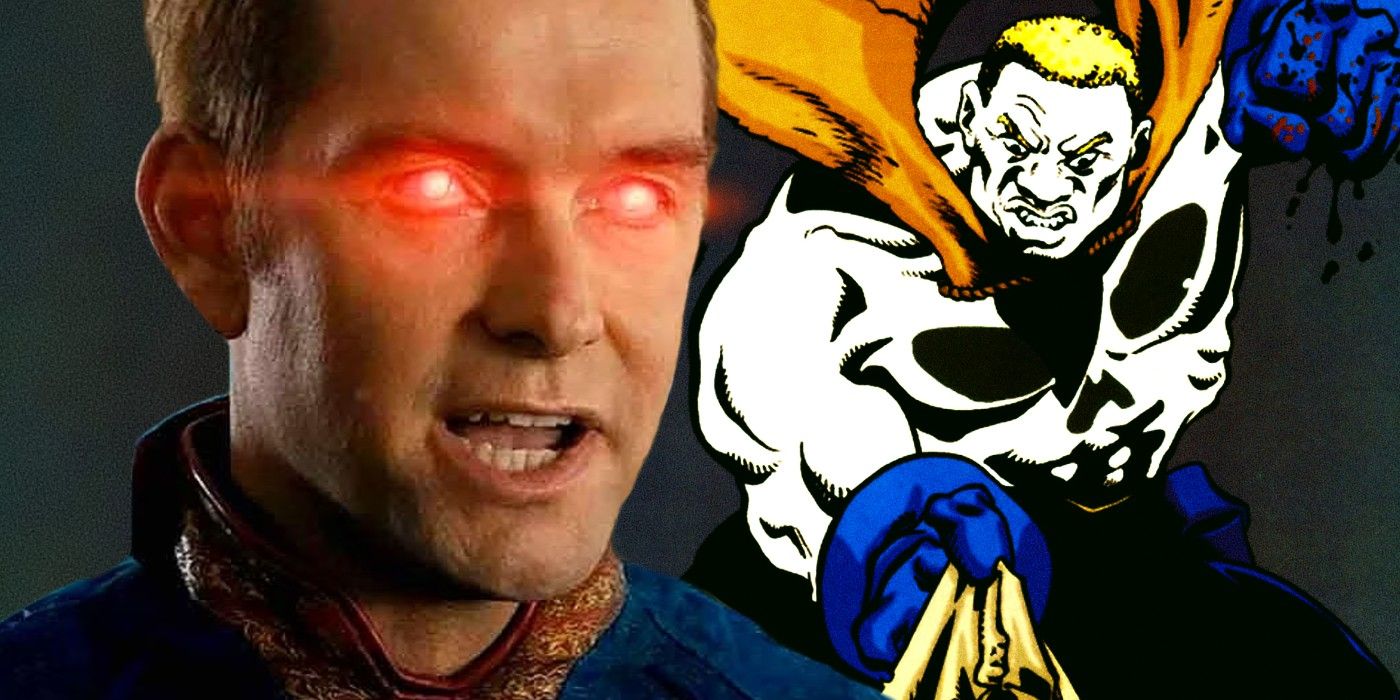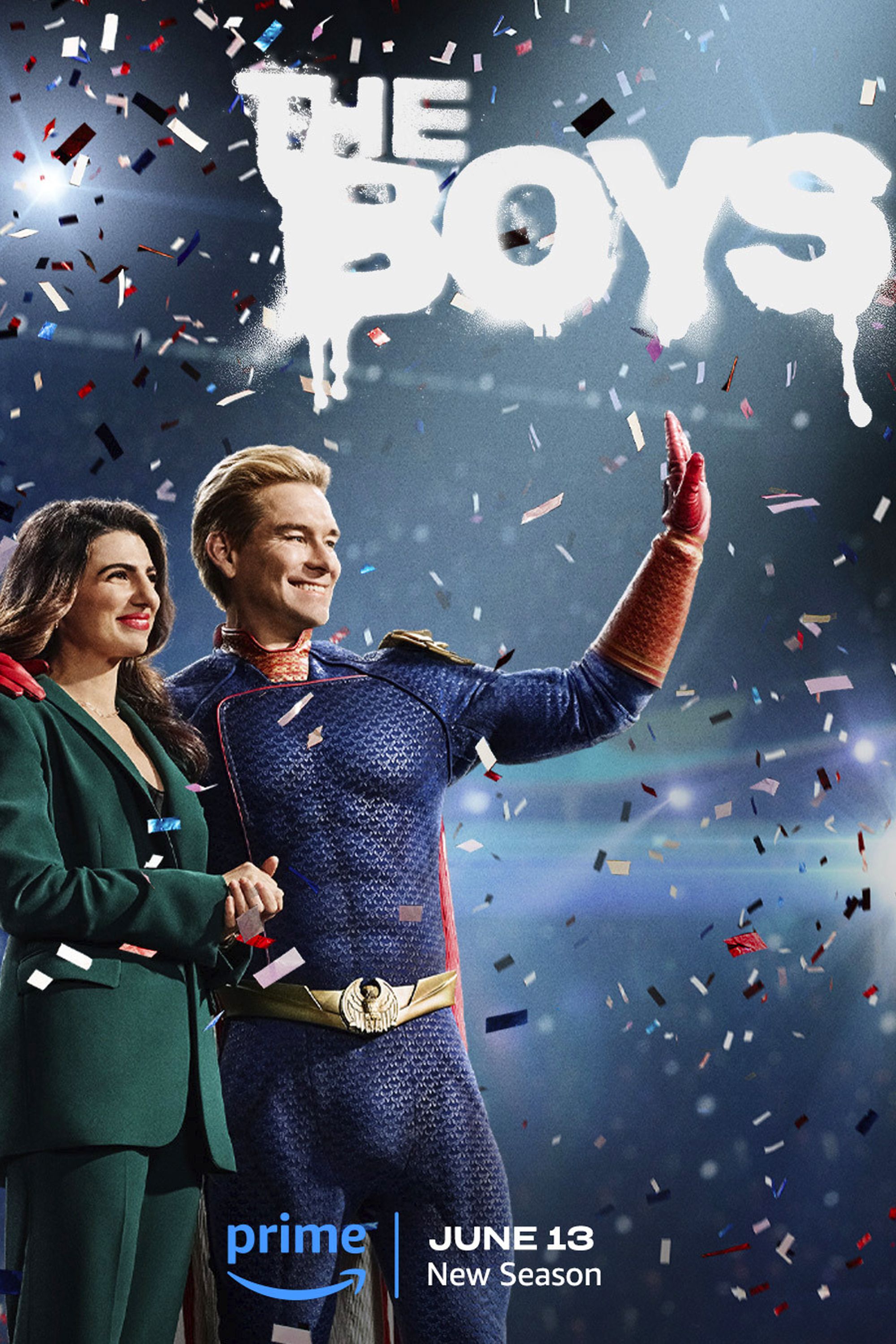How Much Homelander Gets Paid in The Boys Lore (& How the Rest of the Seven Compare)
Summary
- The Seven are the world’s richest superhero team, with the biggest earning power in the industry (followed by the G-Men.)
- Homelander, Black Noir, and Queen Maeve are likely worth around $1 billion each, and make significantly more than the rest of the Seven.
- The TV show version suggests that the Seven’s net worth could be in the high hundreds of millions or even a billion dollars each, making them the world’s biggest celebrities.
In the world of The Boys, superheroes are big business – indeed, behind the scenes, that’s pretty much all they are. While Homelander and the Seven pretend to protect the Earth from alien invasions and powerful supervillains, mostly they just hang out in their satellite clubhouse, wasting their time engaging in whatever extreme debauchery their extraordinary wealth and privilege allows them to get away with.
The Boys – created by writer Garth Ennis and artist Darick Robertson – effectively folded its critiques of the superhero genre and the comic book industry into one another, by having the series’ supes profit off content and merchandise produced using their likenesses.
Sold to the public as accounts of the true exploits of the world’s “heroes,” these material doubled as propaganda for the Seven, covering up their true nature – while at the same time making them exorbitantly wealthy. In this way, they accrued another material form of power, in addition to their superpowers, making them even more dangerous.

Related
Homelander’s Unofficial First Draft Introduced The Boys’ Best Ideas
The Boys is famous for its disdain for superheroes, but the ideas that define the franchise actually began with the original Homelander, Skull.
The Seven Are The Highest-Earning Superheroes In “The Boys”
Assessing The Figures
Throughout
The Boys
‘ run, Garth Ennis avoided putting an exact number how much the Seven made from being heroes, and for a comic that’s sensible. Comic stories tend to have long lives, and inflation means that what’s a huge amount on release may not carry the same impact years later. Still, there were a number of details throughout the series that offered a sense of the scope of their wealth.
Though there was only so much room in The Boys‘ high-octane story to get caught up in hard facts and figures, Garth Ennis did offer a clear sense of the Seven’s extravagant wealth, albeit through tidbits dropped throughout the series. One prominent example came early in the comic’s run, in The Boys #4, when new addition to the Seven sat in on one of her first important meetings – which turned out to involve bickering over the percentage of merchandising each hero receives.
In the scene, it turns out that Homelander, Queen Maeve and Black Noir receive 1% of merchandising profits, while the rest of the heroes – A-Train, Jack from Jupiter, the Deep, and Starlight – get 0.75%. Given the franchise is full of movies, action figures, comics, and live appearances celebrating each hero, the implied difference here is a matter of tens of millions. Whatever the precise figure, The Boys makes it clear that the Seven are the biggest-earning superhero team in the world, followed by the G-Men.
In The Boys #26, Critter says that the G-Men have so much money, they could quit the limelight and still all be set for life. This is notable, as there are over sixty members of their various teams, such as G-Force and the G-Brits. That means whatever the Seven are splitting, a significantly lesser amount is enough to support sixty people in a life of luxury. While the details given are enough to give readers enough sense of the supes’ wealth to serve The Boys’ plot, many fans continue to speculate about the exact figure of Seven’s take-home pay.
Money Was Just One Aspect Of Garth Ennis’ Study Of Excess
The Boys Was About Power & Influence
The Boys
‘ supes use one form of power to acquire status, which in term lets them acquire wealth, which gives them more power. This is a real-world cycle that Garth Ennis injected superpowers into.
While it is a worthwhile exercise to extrapolate potential numbers from the information given in The Boys, it is also important to focus on the role the Seven’s wealth played in the series’ satirical project. The Boys is – first and foremost – a study of the alienating effect of power. Garth Ennis primarily uses superpowers as the mechanism for his critique, but the other, more traditional forms of power that supes such as Homelander cultivate add an important dimension to the story.
It speaks to the idea that power compounds; The Boys‘ supes use one form of power to acquire status, which in term lets them acquire wealth, which gives them more power. This is a real-world cycle that Garth Ennis injected superpowers into with The Boys, but his depiction of how superpowered individuals would use their wealth and status reflects a harsh view of real rich and powerful people. This is supported by the Seven’s activities, as the group are depicted throughout the series living every day like rock stars – with superhuman constitutions.
In The Boys #24, for example, the CEO of Vought was shown to shrug off having to buy a new jet for Black Noir as a minor expense. The team constantly engages in money-making ventures, with Vought footing much of the cost – festivals like Believe and the annual Herogasm gathering are seemingly funded by Vought, but bring in a huge amount of revenue for their Supes. The Boys treats the Seven as essentially the world’s biggest celebrities – a comparison from the real-world would therefore put each of their net worth at hundreds of millions of dollars, if not more.
Amazon’s “The Boys” TV Adaptation Offers More Clarity On How Wealthy The Seven Are
Details Make Satire Richer
It makes sense that Homelander, Black Noir and Queen Maeve are pulling in close to one billion just for existing. In the world of
The Boys
, they are the most valuable commodity, and have diverse interests in a wide set of industries.
Amazon’s The Boys television adaptation, naturally, engages with the same themes of its source material, though at times it approaches them from a revised angle. One way the series has brought fans a greater sense of clarity about the world of The Boys has been with its own references to the financial status of its supes. As with Garth Ennis’ original comic, the on-screen version of the The Boys emphasizes the alienating effect of power on individuals, as part of its exploration of the psyches of many of its characters.
In one particularly noteworthy dialogue exchange from The Boys TV show, the hero known as Nubian Prince is said to be contracted to serve as Baltimore’s hero, for a sum of for $230 million, suggesting a pay scale for heroes in the TV continuity that would put the Seven in the high hundreds of millions by comparison. It is therefore conceivable that the Seven would be worth around a billion dollars each – at least in the case of what the comics call the ‘Big Three.’
Ultimately, The Boys is about horrific corruption. The corruption of individuals by power, as well as the corruption that takes place when corporations run rampant in the name of profit. In this context, it makes sense that Homelander, Black Noir and Queen Maeve are pulling in close to one billion just for existing. In the world of The Boys, they are the most valuable commodity, and have diverse interests in a wide set of industries, from entertainment, to defense and technology. This is an essential aspect of The Boys as satire, making every detail the franchise is incredibly valuable.

The Boys
The Boys is a superhero/dark comedy satire series created by Eric Kripke based on the comic series of the same name. Set in a “what-if” world that reveres superheroes as celebrities and gods who experience minimal repercussions for their actions. However, one group of vigilantes headed by a vengeance-obsessed man named Billy Butcher will fight back against these super-charged “heroes” to expose them for what they are.





